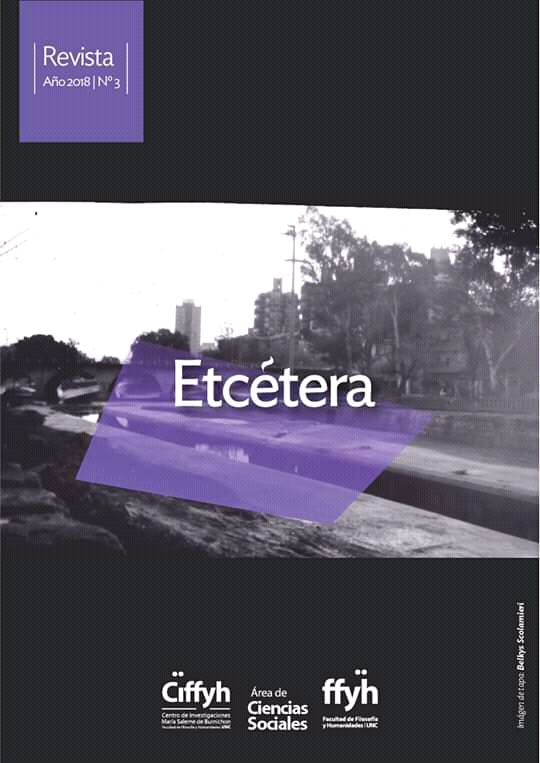Heroes without fame: A sociological view at gay aging beyond suffering
Keywords:
homosexuality, ageing, social changeAbstract
Taking into account the transformations of homosexuality during the last thirty years in many Western countries, the article proposes a reflection on gay aging. It takes as reference points two theories developed decades ago in the North American academic field ("competition in crisis" and "accelerated aging"), with the intention of pointing out their scope and limitations to think about old age and the aging of homosexual males in today's world. It is assumed that these people belong to "hinges" generations, in the sense that their biographical trajectories have been modulated in various ways by social change. Likewise, the article presents some data to compare gay aging with lesbian aging, which would reveal striking differences in the perception of aging itself and in the reading that the "minority" environment makes of it. Finally, it seeks to provide some critical reflections on the agency that approaches to ageing give to the subjects they study.Downloads
References
Assis Simoes, J. (2004). Homossexualidade masculina e curso da vida: pensando idades e identidades sexuais. En: Carrara, S., Gregori, M. F., y Piscitelli, A. (orgs.), Sexualidade e saberes: convenções e fronteiras. Rio de Janeiro. Garamond.
Brown, L., Alley, G., Sarosy, S., Quatro, G., y Cook, T. (2002). Gay men: aging well!. En: Journal of Gay and Lesbian Social Services, V. 13(4), pp. 41-54. UK: Tylor & Francis.
Choi, S. K., Kittle, K., y Meyer, I. H. (2018) Aging LGB adults in California: findings from the 2015–2016. California Health Interview Survey. Los Angeles: The Williams Institute.
De Vries, B. (2009). Aspects of death, grief, and loss in lesbian, gay, bisexual and transgender communities. En: Doka, K. J., y Tucci, A. S. (eds.), Living with grief: diversity and end-of-life care, pp. 243-257. Washington D.C.: Hospice Foundation of America.
Friend, R. (1980). Gay aging: adjustment and the older gay male. En: Alternative Lifestyle, V. 3 (2), pp. 231-248.
Gagnon, J., y Simon, W. (1973). Sexual conduct: the social source of human sexuality. Chicago: Aldine.
Goffman, E. (1971). La presentación de la persona en la vida cotidiana. Buenos Aires: Amorrortu.
Goffman, E. (1984). Internados. Ensayos sobre la situación social de los enfermos mentales. Buenos Aires: Amorrortu.
Henning, C. E. (2016). “Na minha época não tinha escapatória”: teleologias, temporalidades e heteronormatividade. En: Cadernos Pagu, N. 46, pp. 341-371. Campinas: UNICAMP.
Iacub, R. (2013). Interview with Brian de Vries. En: Kairós Gerontología, V. 16 (1), pp. 273-279. San Pablo: PUCSP.
Kimmel, D. (1978). Adult development and aging: a gay perspective. En: Journal of Social Issues, V. 34 (3), pp. 113-130. Nueva Jersey: Wiley-Blackwell.
Kimmel, D. (1979). Life-Story interviews of aging gay men. En: International Journal of Aging and Human Development, V. 10 (3), pp. 239-248.
Martin, J., y Dean, L. (1993). Bereavement following death from AIDS: unique problems, reactions, and special needs. En: Stroebe, M., Stroebe, W., y Hansson, R. O. (eds.), Handbook of bereavement: theory, research, and intervention, pp. 315-330. New York: Cambridge University Press.
Meccia, E. (2011). Los últimos homosexuales. Sociología de la homosexualidad y la gaycidad. Buenos Aires: Gran Aldea Editores.
Meccia, E. (2017). ¿Quién Teme al Espejo? Una polémica sociológica en torno a cómo los gays ven el envejecimiento gay. En: Research on Ageing and Social Policy, V. 4 (1), pp. 70-95.
Meccia, E. (2018). Los viejos putos. En: Revista Anfibia. Buenos Aires: Universidad Nacional de San Martín. En línea en: http://www.revistaanfibia.com/ensayo/los-viejos-putos/
Meyer, I. (2003). Prejudice, social stress, and mental health in lesbian, gay, and bisexual populations: conceptual issues and research evidence. En: Psychological Bulletin, V. 129 (5), pp. 674-697. Estados Unidos: American Psychological Association.
Rada Schultze, F. (2018). La diversidad en el curso de la vida. Cambios y continuidades en el envejecimiento de gays, lesbianas y trans. Buenos Aires: Teseo.
Schope, R. (2005). Who’s afraid of growing old? Gay and lesbian perceptions of aging. En: Journal of Gerontological Social Work, V. 45 (4), pp. 23-38.
Downloads
Published
How to Cite
Issue
Section
License
Aquellos autores/as que tengan publicaciones con esta revista, aceptan los términos siguientes:
- Los autores/as conservarán sus derechos de autor y garantizarán a la revista el derecho de primera publicación de su obra, el cuál estará simultáneamente sujeto a la Licencia de reconocimiento de Creative Commons que permite compartir, copiar, distribuir, ejecutar y comunicar públicamente la obra, siempre que: 1) se cite la autoría y la fuente original de su publicación (revista, editorial y URL de la obra); 2) no se use para fines comerciales; 3) En caso que se transforme o genere una obra derivada a partir de esta obra, deberá compartise bajo las mismas condiciones establecidas por esta licencia.
- Los autores/as podrán adoptar otros acuerdos de licencia no exclusiva de distribución de la versión de la obra publicada (p. ej.: depositarla en un archivo telemático institucional o publicarla en un volumen monográfico) siempre que se indique la publicación inicial en esta revista.
- Se permite y recomienda a los autores/as difundir su obra a través de Internet (p. ej.: en archivos telemáticos institucionales o en su página web) luego de la publicacion del articulo, lo cual puede producir intercambios interesantes y aumentar las citas de la obra publicada. (Véase El efecto del acceso abierto).
- El titular del copyright es Etcétera. Revista del Área de Ciencias Sociales del CIFFyH.
















